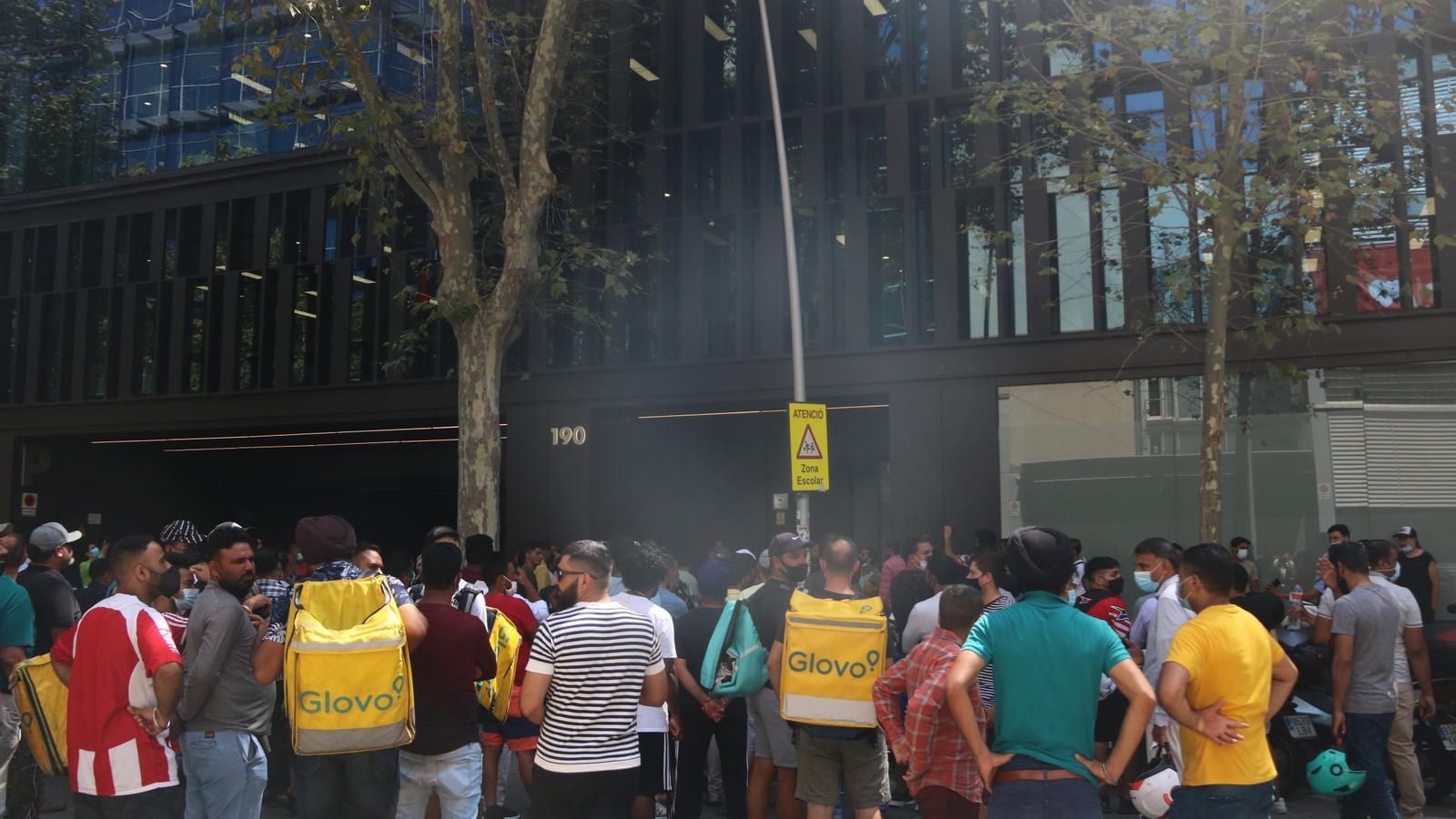Glovo to make changes to its app after protests
Delivery riders prepare an indefinite strike if they are not satisfied with the modifications

BarcelonaThe three consecutive days of mobilizations by Glovo delivery riders have borne fruit: according to Unioin CCOO, the home delivery platform has informed its riders that it will make changes to the application after the protests. It has not advanced more details, saying only that they will be made public on Friday. Meanwhile, according to the union, dissatisfied workers have organised to boycott the system they complain about, and do not rule out an indefinite strike if they do not agree with the changes presented by the company.
The epicenter of this latest confrontation between company and workers has been the multiplier, one of the novelties in the application as a result of the new 'rider law' for home deliveries. This system forces Glovo delivery workers to decide how much they want to multiply the rate of each order (ie, what they will earn for doing so), a multiplier that can range from 0.7 to 1.3.
The formula is designed to give them more autonomy. However, they have detected that the system awards more orders to riders who choose the lowest rates: that is, to those who accept to work for less money. Hence they have been mobilising since Saturday, and yesterday, Monday, the company told them that they would review the system.
"The workers agreed among themselves they would all set the multiplier to 1.3 and from Friday, depending on whether they continue to push prices down, will go on an indefinite strike," explains Carmen Juares, secretary of new work realities of CCOO Catalonia.
Accusations of subcontracting
But this is not the only labor conflict that the company is facing. Shortly before the new law came into force (which prohibits these platforms from operating with self-employed workers), Glovo announced that it would activate a hybrid model: hire 20% of the staff and allow the rest to continue being self-employed. For the unions, this implies that they are skirting the law, but in addition, the company is having problems even with the workers theoretically hired directly.
"The contracts have been made through a temporary staffing firm, which is an illegal transfer of workers," criticises Juares. Faced with this, the affected have started to work to rule: they have logged on to the app but have ignored all orders.
